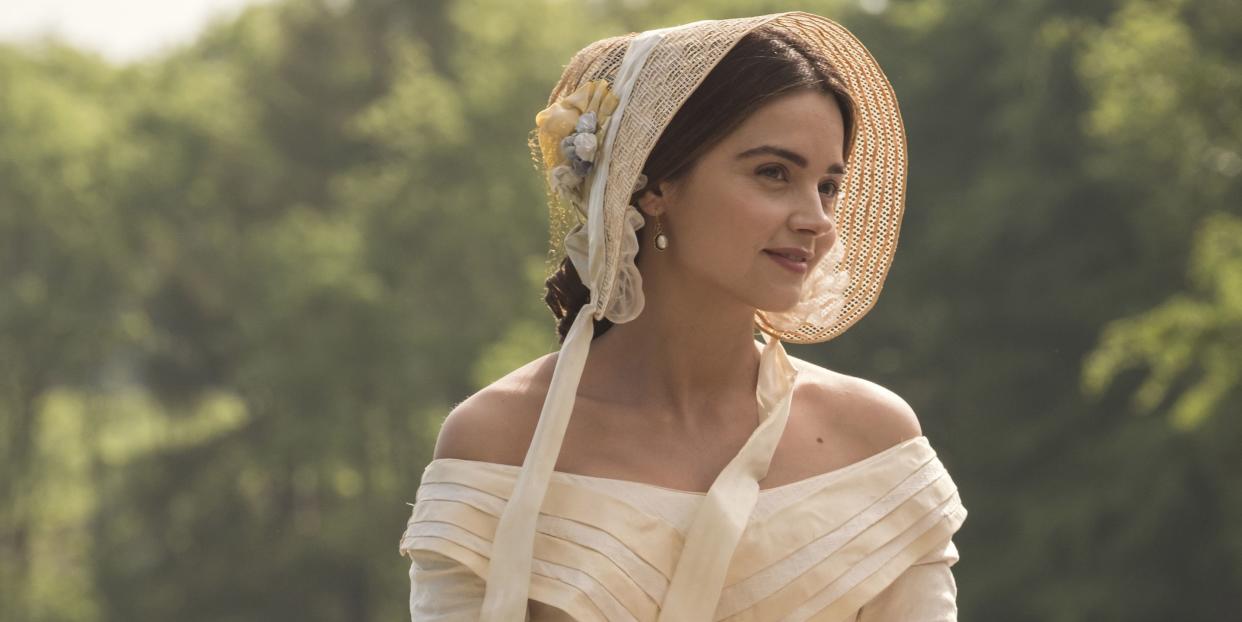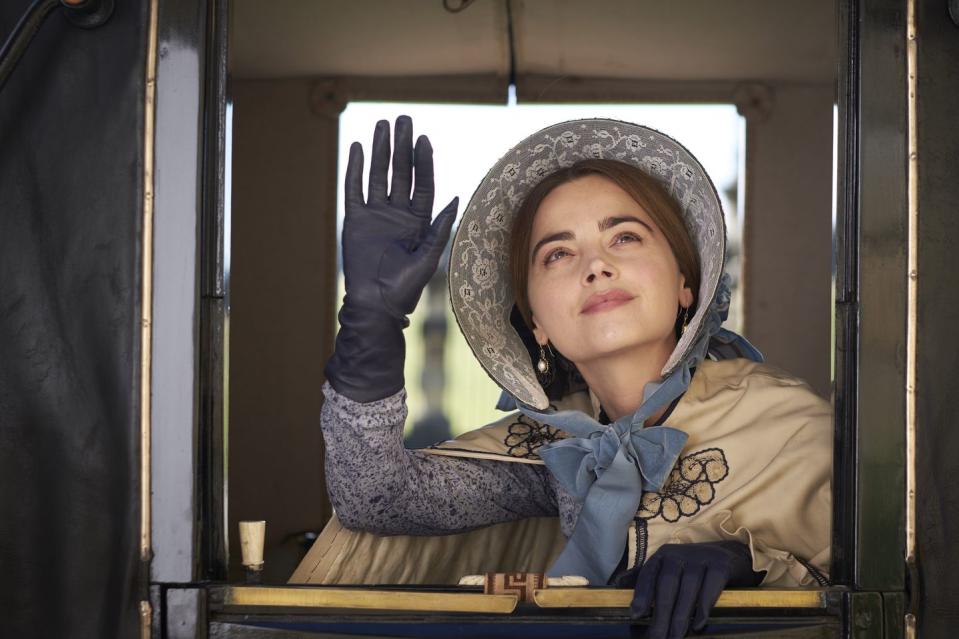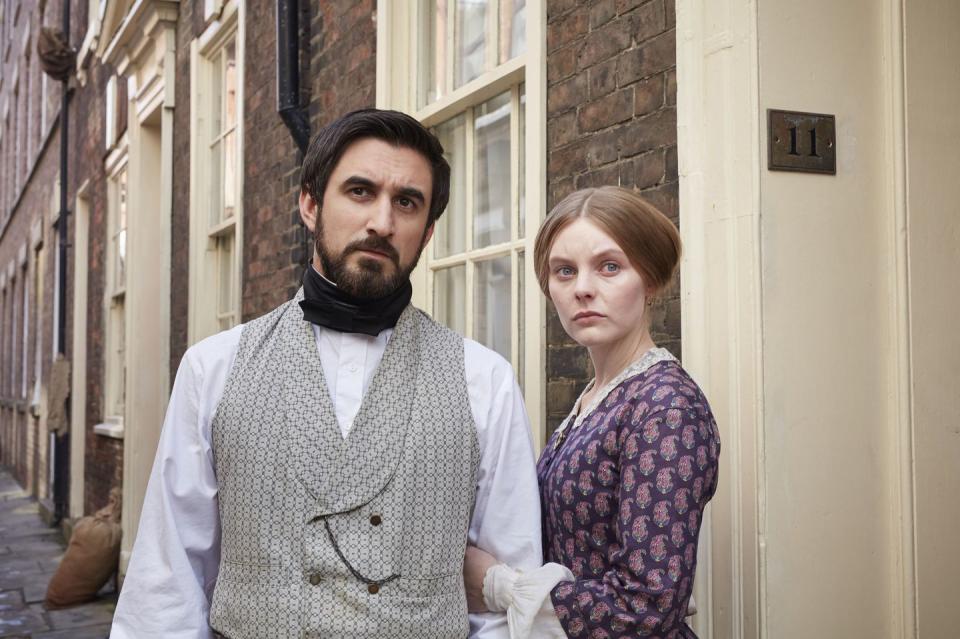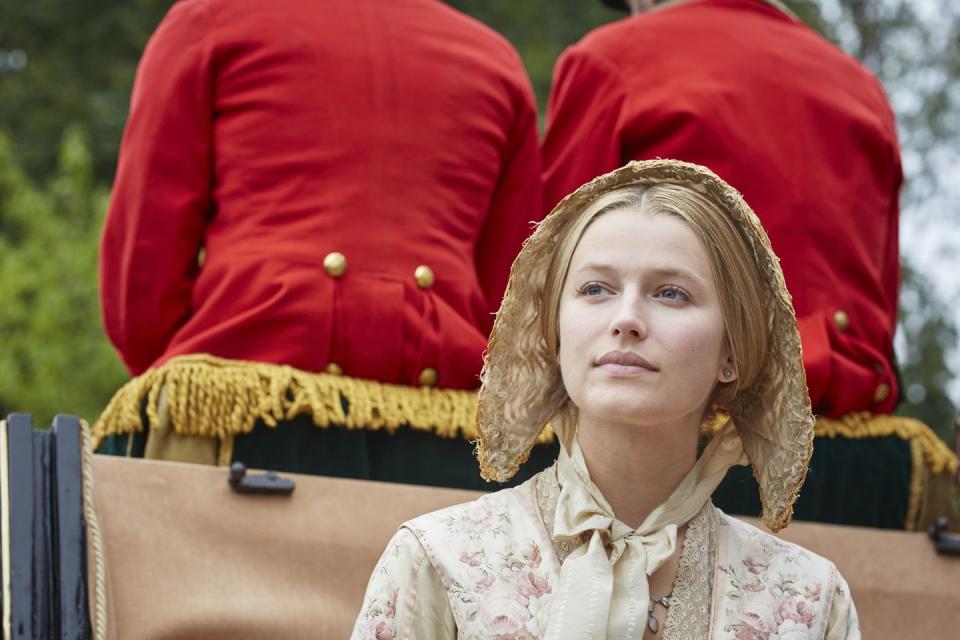Jenna Coleman, Nell Hudson, and Lily Travers Reflect on Queen Victoria's Legacy

This month marks the 200th anniversary of Queen Victoria's birth. In honor of the milestone, we asked three stars of Victoria, the Masterpiece PBS series that chronicles the iconic British monarch's early reign, why they think her story is still so fascinating to a modern audience.
Below, Jenna Coleman, who plays the Queen herself, Nell Hudson, who plays Nancy Skerrett, Victoria's dresser, and Lily Travers, who plays the Duchess of Monmouth, Victoria's Mistress of the Robes, share their thoughts.
Jenna Coleman

"She’s kind of an unlikely Queen in many ways. You see the images of her looking very regal, but as a character and a person, I feel like I’ve gotten to know her more and more. I mean, she published a book and she had nine children. She’s the first Queen to ever be a mother. And I think the Victorian era in itself was an incredibly dynamic time in terms of history," Coleman says.
"I’d never even thought about the fact that oh, she was 18 when she first came to the throne; never mind that she was on the throne with nine children. And these middle years feel very unexplored. I do think at its heart, Victoria is a love story, and it’s a real love story. I think people like to see that. To be watching it-never mind me playing it-and knowing it was real, is quite a thrilling thing."
Nell Hudson

"I think Queen Victoria is intriguing because there’s so much we don’t know about her," Hudson tells T&C. "She reigned for such a long time, and there are endless things to cover from the epic and global scale of her reign to the more prosaic aspects of the Queen’s life, which are probably what fascinate people the most."
Lily Travers

"I think both my character Sophie and Queen Victoria have a shared understanding of what it’s like to be an independent woman at a time when there was so much restriction, and they managed to do that under a polite guise," Travers says.
"What Queen Victoria did so incredibly was to have power and influence as a monarch, but to also be a symbol for the loving family vision that everyone admired so much at the time. Obviously, she had a huge number of children, and then her relationship-it sounds kind of cheesy, but it’s just a beautiful love story. I think everybody loves that. She was so devoted to her husband."
('You Might Also Like',)
